Public Pools And Local Baths
Iceland is full of geothermal water — and locals have turned it into one of the country’s best traditions: swimming and soaking. From modern spa-like pools to tiny rural hot pots, these spots are a big part of Icelandic daily life. They’re clean, relaxing, and open year-round — no matter the weather.
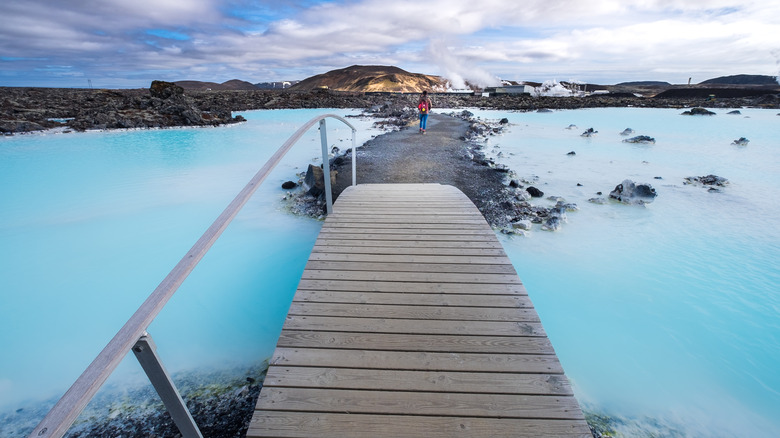
Blue Lagoon
Iceland’s most famous geothermal spa, surrounded by lava fields and milky blue water. Known for its relaxing silica mud masks and luxury packages.

Sky Lagoon
Oceanfront spa just outside Reykjavík. Offers a stunning infinity-edge pool, Icelandic 7-step ritual, and sunset views. A modern take on traditional bathing.
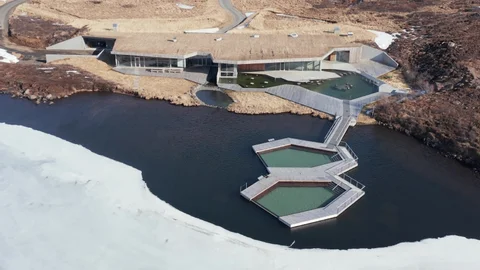
Vök Baths
Located in East Iceland, these floating geothermal pools on a lake offer a unique experience. Includes a tea bar, steam baths, and nature views.
Local Pools vs. Geothermal Spas – What’s the Difference?
Iceland has two kinds of hot water experiences: affordable local pools that are part of everyday life, and luxurious geothermal spas built for relaxation and tourism. Both are worth visiting — but they offer very different vibes.
- 🏊♂️ Local Pools (like Laugardalslaug or Hofsós) are part of every town — clean, simple, and social.
- 🧖♀️ Geothermal Spas (like Blue Lagoon or Sky Lagoon) are designed for full relaxation experiences with premium prices.
- 💸 Local pools usually cost 1000–1200 ISK. Geothermal spas can range from 5,000–15,000 ISK.
- 🧼 You must shower naked before entering at both types — this is an important part of Icelandic bathing culture.
- 🧴 Soaps, lotions, and silica masks are offered at spas — but not at public pools.
- 🕓 Pools are open all year, even during snowstorms. They’re heated naturally and safe in any weather.
Want to try both? We recommend soaking like a local in the towns — and then treating yourself to a spa day with ocean views or lava rocks!
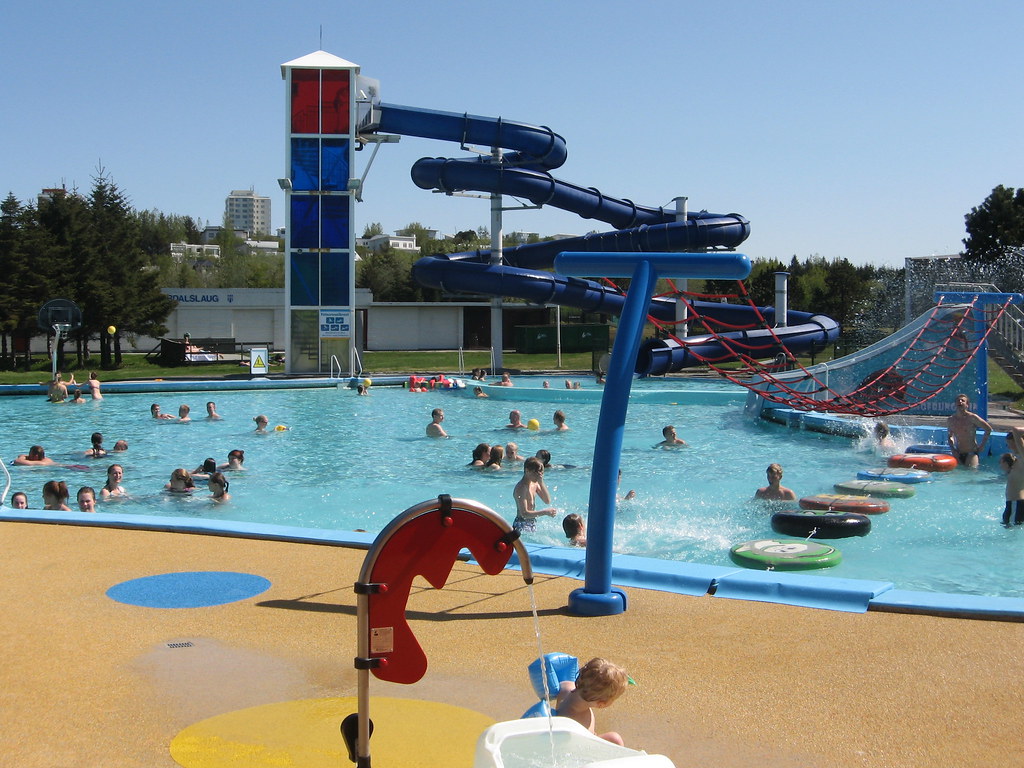
Laugardalslaug, Reykjavík
The largest pool in Reykjavík, with outdoor hot tubs, a sauna, steam rooms, and waterslides. Popular with locals and great for families year-round.
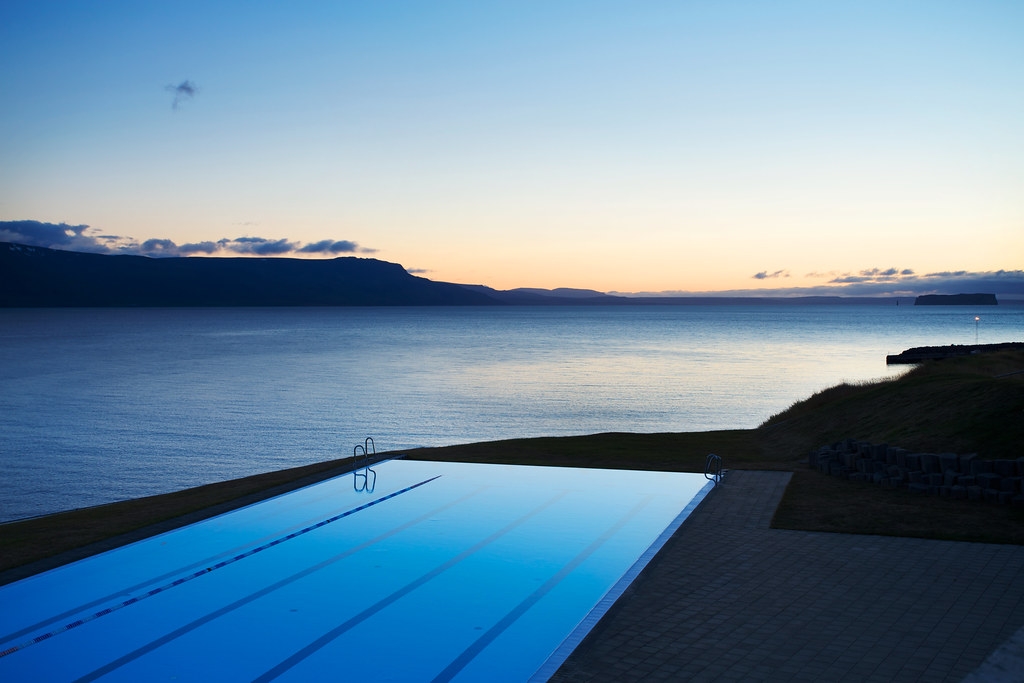
Hofsós Pool
A scenic, oceanside swimming pool in North Iceland. Offers one of the most relaxing views in the country. Quiet, minimalist, and beloved by photographers.
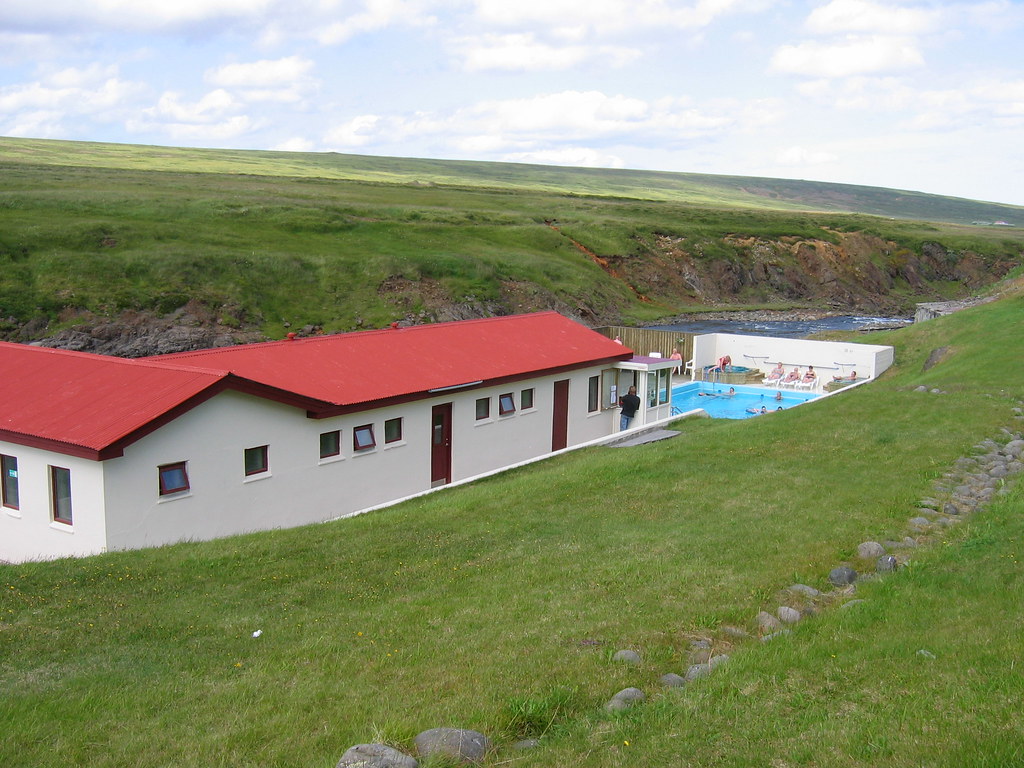
Selárdalur Pool
A peaceful geothermal pool in East Iceland, surrounded by green hills and salmon rivers. One of the country’s most remote and tranquil public pools.
Swimming Pools Are Part of Icelandic Culture
In Iceland, swimming pools aren’t just places to exercise or relax — they’re a core part of community life. Locals of all ages visit the pool regularly, and it’s one of the most social, healthy, and beloved traditions in the country.
- 🧖♂️ Most towns, even the smallest ones, have their own public pool — often geothermally heated.
- 💬 The hot tubs (called “heitir pottar”) are social spaces where Icelanders catch up and chat about news, weather, or life.
- 🏫 Swimming is part of school education, and kids grow up confident and comfortable in the water.
- 🧼 Cleanliness and hygiene are taken seriously — the showering rules are a cultural norm, not just a guideline.
- ☕ Many pools offer coffee machines or snack stands, turning a soak into a full social break.
If you want to experience Iceland like a local, skip the tourist spas for a day and head to the nearest town pool — you’ll soak, unwind, and understand a piece of Icelandic daily life.
FAQ – Visiting Pools in Iceland 💬
Are public pools open all year?
Yes! Almost all pools in Iceland are open year-round. They’re heated with natural geothermal water and safe to use even in snow or cold temperatures.
Do I have to shower naked before entering?
Yes — this is normal and expected. Icelanders are very clean, and all guests must shower thoroughly without swimsuits before entering any pool or hot tub.
How much does it cost to visit a pool?
Most public pools cost between 1000–1200 ISK for adults. Children often enter free or at a discounted rate. Towels and swimsuits can be rented if needed.
What’s the difference between a spa and a pool?
Spas like Blue Lagoon are luxury experiences with higher prices, while public pools are more local and casual — used daily by Icelanders of all ages.
Are there pools in small towns?
Yes — nearly every village or small town has its own pool, and they’re often one of the best stops on a road trip. Many include hot tubs and scenic views.
Can children visit all pools?
Yes, most pools are family-friendly with shallow areas and slides. Some hot tubs may have temperature warnings or age guidelines, so check signs on-site.
